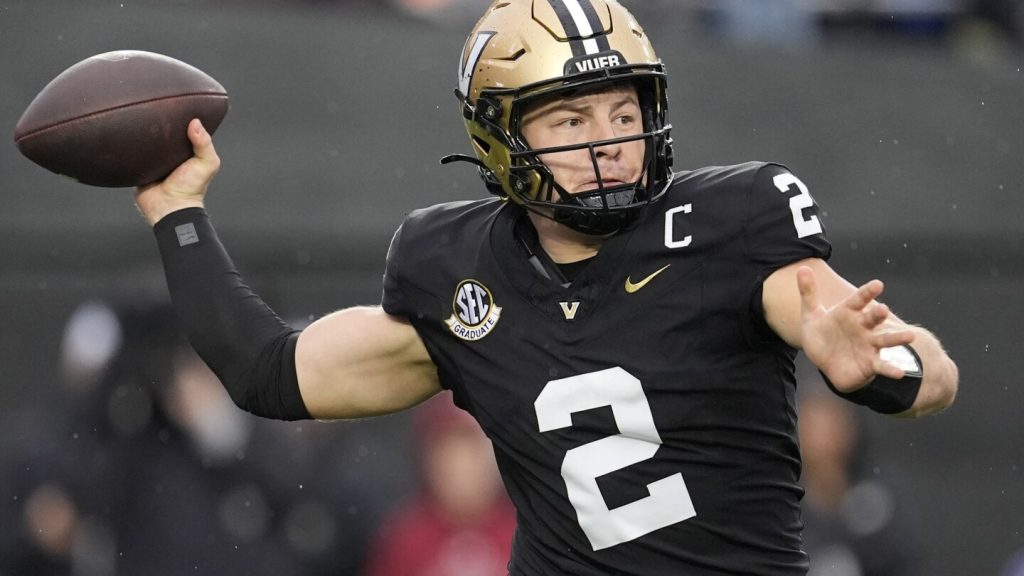Vanderbilt quarterback Diego Pavia has filed a lawsuit against the NCAA over its rules that limit the eligibility of former junior college players after transferring to a Division I school. Pavia believes these rules restrict athletes’ ability to earn money under name, image, and likeness rules. The lawsuit, filed in a U.S. District Court in Nashville, seeks a temporary restraining order and two additional seasons of eligibility for Pavia to avoid further harm. Pavia argues that the NCAA’s rules unfairly limit junior college players compared to other Division I football players.
Pavia did not receive offers from Football Bowl Subdivision schools out of high school and attended New Mexico Military Institute before transferring to New Mexico State and then Vanderbilt. He has had success at each school, leading Vanderbilt to its best start in decades and achieving bowl eligibility for the Commodores. However, Pavia was injured in a recent game, casting uncertainty over his future playing time. Despite the lawsuit, Vanderbilt coach Clark Lea has expressed support for Pavia and his desire for him to continue playing as long as possible.
The lawsuit challenges the NCAA’s rules on junior college player eligibility, arguing that they do not promote competition or benefit college athletes. Pavia’s legal team contends that these rules harm athletes and the quality of Division I football, contradicting the NCAA’s mission to promote athlete well-being. The lawsuit also questions the redshirt rule that limits athletes to four seasons in any sport at the Division I level, preventing them from utilizing a fifth year to earn name, image, and likeness money. Pavia’s legal team asserts that this limitation further restricts athletes’ opportunities.
The NCAA has faced legal challenges in recent years and suffered losses in court, including a Supreme Court decision in 2021 that found the organization cannot limit education-related benefits offered to college athletes. Pavia’s lawsuit adds to the ongoing debate over NCAA rules and athlete compensation, highlighting the struggles that many athletes face in navigating the complex regulatory landscape. As Pavia continues to pursue his legal case, the college football world remains focused on his on-field performance, as he has been a standout player for Vanderbilt and made history with a victory over a top-five program.
As Pavia and his legal team press their case in court, the implications of this lawsuit could have far-reaching effects on NCAA regulations and the treatment of college athletes. The outcome of this legal battle may shape future policies and rules governing athlete eligibility and compensation, potentially leading to greater freedoms and opportunities for college players. Pavia’s fight for additional eligibility and the right to earn name, image, and likeness income reflects a broader movement within college athletics toward greater empowerment and recognition for student-athletes. The spotlight is now on the NCAA and its response to these legal challenges as the organization faces mounting pressure to reform its policies.


